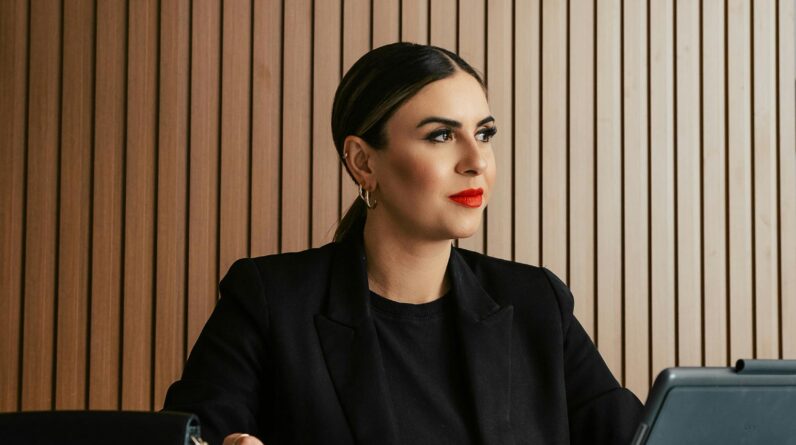
Let’s talk about mushroom coffee and who should avoid it. While this unique blend of coffee and medicinal mushrooms has gained popularity for its potential health benefits, it’s important to note that it may not be suitable for everyone. Individuals who are pregnant, breastfeeding, or have a known allergy to mushrooms should avoid consuming mushroom coffee. Rest assured, though, there are plenty of other delicious beverages available that can still provide you with your daily caffeine fix.
Who Should Not Drink Mushroom Coffee?
Mushroom coffee has gained popularity in recent years due to its potential health benefits and unique flavor. By blending the rich taste of coffee with the nutritional properties of mushrooms, this beverage has become a favorite among health-conscious individuals. However, it is important to recognize that mushroom coffee may not be suitable for everyone. In this article, we will explore the various groups of individuals who should exercise caution or avoid consuming mushroom coffee altogether.
Pregnant or Breastfeeding Women
Pregnant and breastfeeding women should be cautious when it comes to consuming mushroom coffee. While mushrooms themselves are generally considered safe during pregnancy, the caffeine content in mushroom coffee can pose potential risks. High levels of caffeine have been associated with an increased risk of miscarriage and preterm birth. Additionally, caffeine can pass through breast milk and affect the infant’s sleep patterns and overall health. Therefore, it is advisable for pregnant or breastfeeding women to consult with their healthcare provider before incorporating mushroom coffee into their routine.
Children
Due to its caffeine content, mushroom coffee is not recommended for children. Caffeine has stimulant effects on the central nervous system and can interfere with a child’s sleep, behavior, and overall development. Furthermore, children may have difficulty metabolizing caffeine efficiently, leading to prolonged effects and adverse reactions. It is essential to prioritize their health and well-being by minimizing their caffeine intake, and this includes refraining from giving them mushroom coffee.

Individuals with Mushroom Allergies
While mushroom allergies are relatively rare, they can occur in some individuals. Allergies to certain types of mushrooms, such as shiitake or porcini mushrooms, can manifest as skin rashes, itching, swelling, or even anaphylaxis in severe cases. If you have a known allergy to mushrooms, it is prudent to avoid mushroom coffee or any other products containing mushroom extracts. Always read product labels carefully and consult with a healthcare professional if you are unsure about potential allergens.
People with Sensitivity to Caffeine
For individuals who are sensitive to caffeine, mushroom coffee may not be the best choice. Caffeine can cause symptoms such as restlessness, increased heart rate, anxiety, and difficulty sleeping in those who are highly sensitive to its effects. If you notice adverse reactions after consuming caffeine, it is advisable to limit or avoid mushroom coffee to prevent discomfort or other potential health issues.

Those with Gastrointestinal Disorders
People with gastrointestinal disorders, such as acid reflux, irritable bowel syndrome, or gastritis, may be more prone to experiencing digestive disturbances when consuming mushroom coffee. Coffee, including mushroom coffee, contains compounds that can irritate the stomach lining and worsen symptoms such as heartburn, bloating, or diarrhea. If you have a pre-existing gastrointestinal condition, it is recommended to approach mushroom coffee with caution and pay attention to any adverse effects.
Persons with Autoimmune Diseases
Individuals with autoimmune diseases should be aware that mushroom coffee could potentially impact their conditions. While mushrooms have been linked to immune-modulating effects, it is not fully understood how these effects may interact with specific autoimmune diseases. It is crucial to consult with a healthcare professional familiar with your condition before incorporating mushroom coffee into your diet. They can provide personalized advice on whether mushroom coffee is safe for you, as it may affect medication efficacy or disease progression.

Individuals on Certain Medications
Some medications can interact with caffeine, which is present in mushroom coffee. Certain antibiotics, anticoagulants, and certain psychiatric medications, among others, can be affected by caffeine consumption. Interactions can range from decreased medication effectiveness to increased side effects. It is essential to check with a healthcare provider or pharmacist about potential interactions before consuming mushroom coffee if you are currently taking any medications.
People with Liver or Kidney Disease
Individuals with liver or kidney disease should use caution when considering mushroom coffee. Caffeine is metabolized in the liver and excreted through the kidneys. Impaired liver or kidney function may affect the body’s ability to process caffeine efficiently, potentially leading to increased side effects or complications. If you have liver or kidney disease, it is advisable to consult with your healthcare provider before adding mushroom coffee to your routine.
Those with Bleeding Disorders
Mushroom coffee contains compounds that have blood-thinning properties. While this can be beneficial for some individuals, such as those at risk of clot formation, it can be problematic for people with bleeding disorders or those taking anticoagulant medications. The potential interaction between the blood-thinning properties of mushroom coffee and anticoagulants can increase the risk of excessive bleeding. If you have a bleeding disorder or take anticoagulants, it is crucial to consult with your healthcare provider before consuming mushroom coffee.
Individuals with Mental Health Conditions
Caffeine, a component of mushroom coffee, can affect mental health in certain individuals. For people with anxiety disorders, bipolar disorder, or insomnia, caffeine can potentially worsen their symptoms and disrupt their sleep patterns. In some cases, excessive caffeine consumption has been associated with increased anxiety, jitteriness, or irritability. Individuals with mental health conditions should consider reducing their caffeine intake or avoiding mushroom coffee to prevent exacerbation of their symptoms.
Conclusion
While mushroom coffee offers an exciting fusion of flavors and potential health benefits, it may not be suitable for everyone. Pregnant or breastfeeding women, children, individuals with mushroom allergies, sensitivity to caffeine, gastrointestinal disorders, autoimmune diseases, certain medications, liver or kidney disease, bleeding disorders, and mental health conditions should exercise caution or avoid mushroom coffee altogether. It is essential to prioritize your health and consult with a healthcare professional if you have any concerns regarding the safety or suitability of mushroom coffee for you. By making informed choices, you can enjoy a balanced and enjoyable lifestyle while maximizing your well-being.







